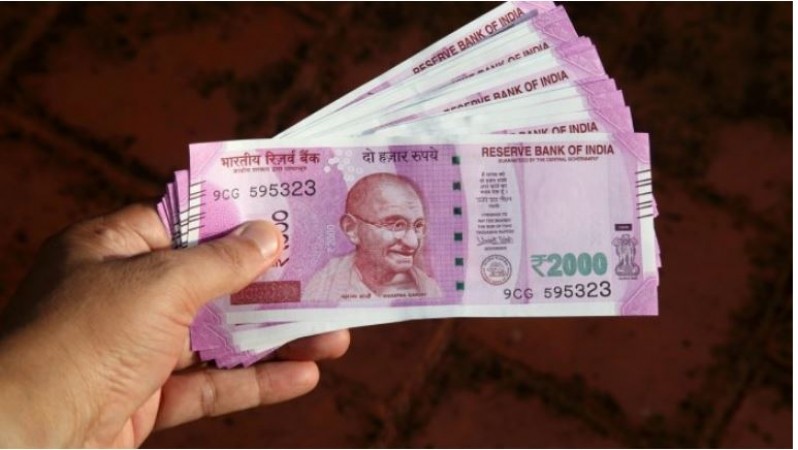
The Reserve Bank of India has implemented a new policy, effective from today, discontinuing the exchange and deposit of Rs 2,000 denomination currency notes at traditional bank branches. As of October 7th, this service will no longer be available.
However, starting from October 8th, the public will still have the option to deposit or exchange these phased-out Rs 2,000 notes, but with a restriction. This can only be done at designated RBI issue offices, and the maximum amount permitted for each transaction is limited to Rs 20,000, as outlined in an official statement from the central bank.
It's important to note that despite these changes, Rs 2,000 banknotes will continue to be considered legal tender, unless otherwise specified.
According to RBI Governor Shaktikanta Das, as of May 19th, there were Rs 3.56 lakh crore worth of Rs 2,000 notes in circulation. Of this total, Rs 12,000 crore remained unredeemed as of a recent press conference following the Monetary Policy Committee announcement on Friday.
In a previous update on September 30th, the RBI reported that as of September 29th, Rs 3.42 lakh crore of these notes had been returned, leaving Rs 14,000 crore outstanding. This implies that only Rs 2,000 crore worth of these notes were returned during the extended timeline granted to the public by the RBI.
Commencing on October 8th, members of the public will also have the option to send Rs 2,000 notes via India Post, addressing them to any of the 19 RBI Issue Offices, in order to have the funds credited to their Indian bank accounts, in accordance with the central bank's guidelines.
The reintroduction of Rs 2,000 banknotes into the system had caused a surplus of liquidity. To manage this, the central bank implemented measures such as the imposition of an incremental cash reserve ratio (I-CRR). As a result, Governor Shaktikanta Das stated in his monetary policy statement on Friday that there has been a moderation in excess liquidity conditions, partly due to the combined impact of I-CRR and advance tax outflows in September, leading to an increased utilization of the marginal standing facility (MSF) by banks.
RBI Revamps Internal Ombudsman Framework to Enhance Customer Grievance Resolution
RBI Incorporates PM Vishwakarma in PIDF Scheme; Extends Scheme's Duration by Two Years
RBI Monetary Policy LIVE: Repo Rate Holds Steady at 6.5%, See Updates